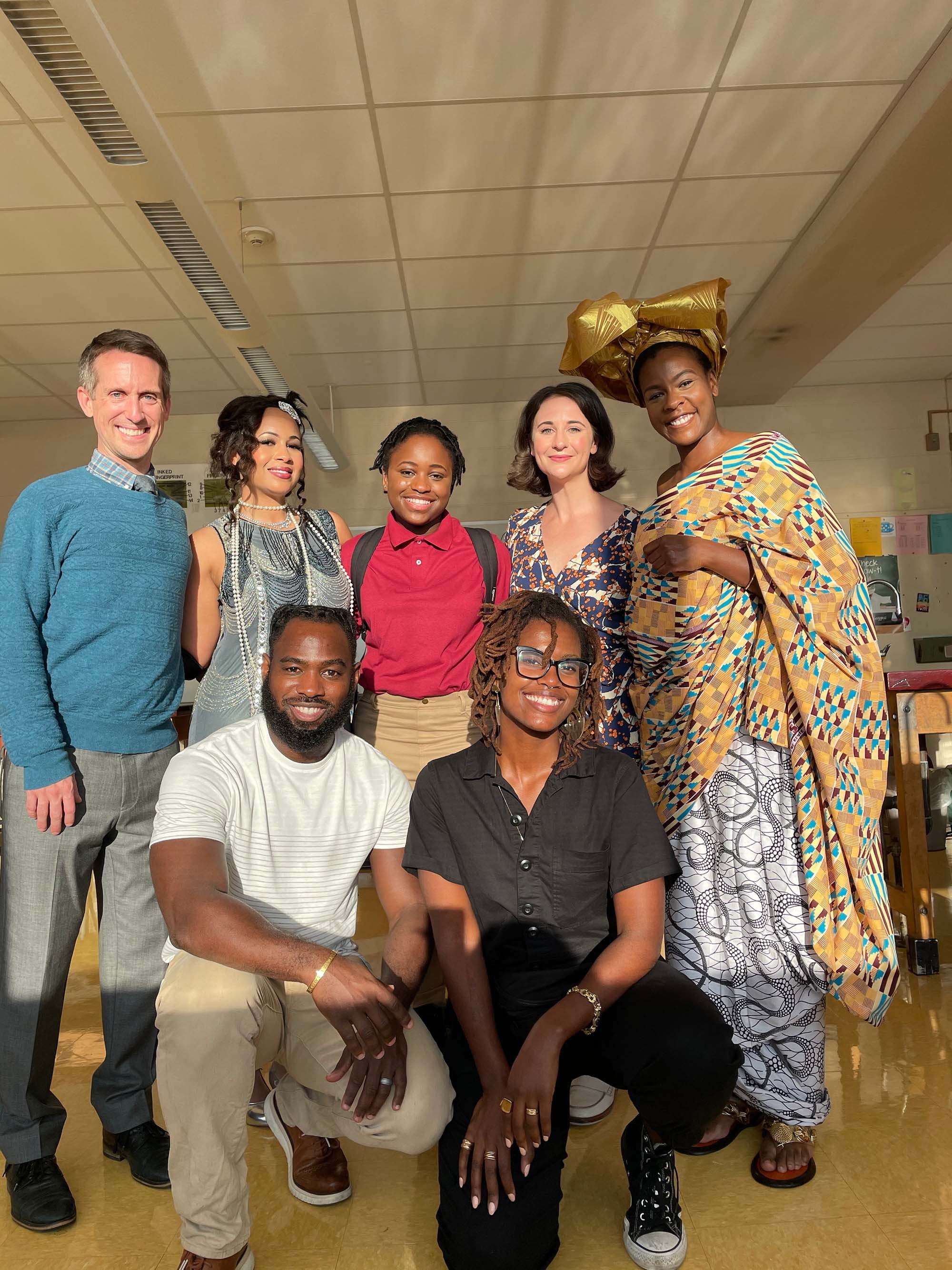Respectfully
Respectfully is about the empowering journey of a Black AP Bio student who leans on her ancestors for support when she is blocked from entering the classroom by her white teacher. She won't be devalued or diminished because of how she looks because she is, in fact, her ancestor's wildest dreams.
MISSION:
This film was created to highlight the biases and discrimination that young Black girls face daily in the American education system and to celebrate the practice of ancestral veneration. We are a dedicated team of Black creatives and allies who highlight injustice and advocate for change.
Director’s Statement
Black people throughout the diaspora believe our ancestors support us with their strength and wisdom. This is especially comforting as the world can be a solitary place when we inhabit white spaces. In our story, Keisha’s foremothers act as personifications of the decisions black people make when engaging with white people in positions of power. They also add a touch of humor and a whole lot of personality.
I know the importance of being able to express yourself through appearance. Especially during adolescence, it is often the first form of showing our personalities to the world. There are many other black women who have been in Keisha’s position; judged because of how we look.
I was immediately drawn to the script because of the way it portrays a very real issue in a concise and clever fashion. It also reminded me of my own natural hair journey that started during highschool. Pressure from society and even my family came in the form of passive aggressive comments. I’ve been treated differently, I’ve been stereotyped all because I chose to rock the hair that I was born with. To be a black woman is to be unfairly judged. It’s to live with our hair, our clothes, our bodies and voices being stifled to make others comfortable. When we can see ourselves on screen taking up space it can help us envision a world where we don’t have to shrink for anyone. Our stories deserve to be seen.
Seed & Spark Campaign
In her essay "An Aesthetic of Blackness", Bell Hooks writes, "I want to share the aesthetic inheritance handed down to me by my grandmother and generations of black ancestors..." She concludes with the argument that everything we consume teaches us to see. I believe that the things we see on a regular basis, the things we choose for our home, wardrobe and otherwise, are a direct influence on how we interpret beauty and its function. Growing up an avid reader of black women authors has shaped even what I couldn't see. Now, I crave to allow these literary memories to take shape. This is the premise of my upcoming experimental short film, 'Things at Rest’. Set to monologues written by Ntozake Shange, 'Things At Rest' explores the philosophy of Bell Hooks, the poetic prose of Toni Morrison, the historical fables of Lorraine Hansberry, and the stage direction of Mildred D. Taylor. The common denominator between these writers is the way they approach materialism. Their characters similarly learn and are shaped by experiences with the loss of things. Which items are held sacred are different based on time and location but their significance holds steady across cultures in the black diaspora. For audience members to perceive this project as intended, the visual grammar will focus heavily on objects and symbolism. Viewers will connect the images to their literary origin by recognizing how characters relate to very literal objects or “THINGS”.







